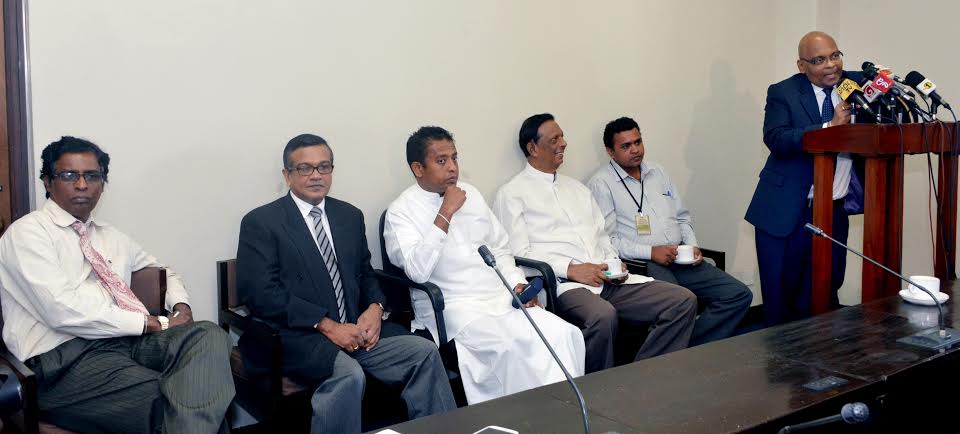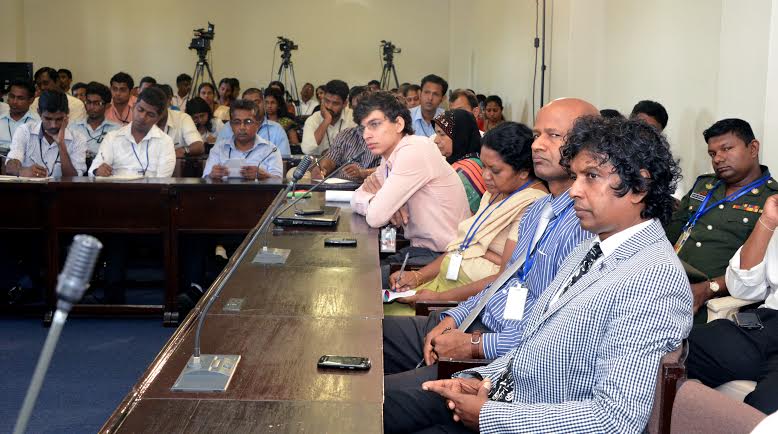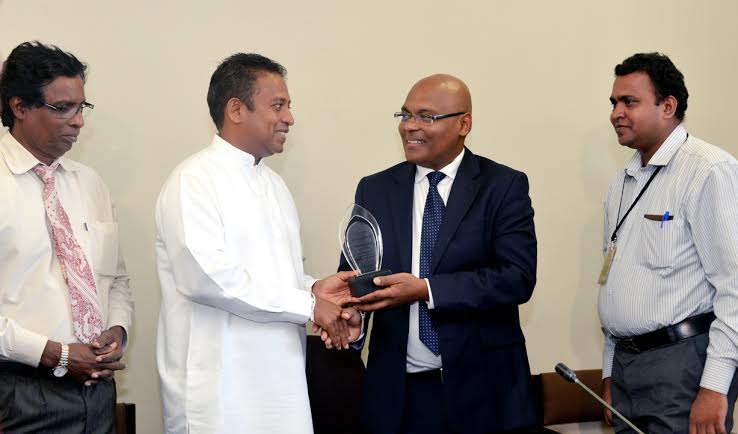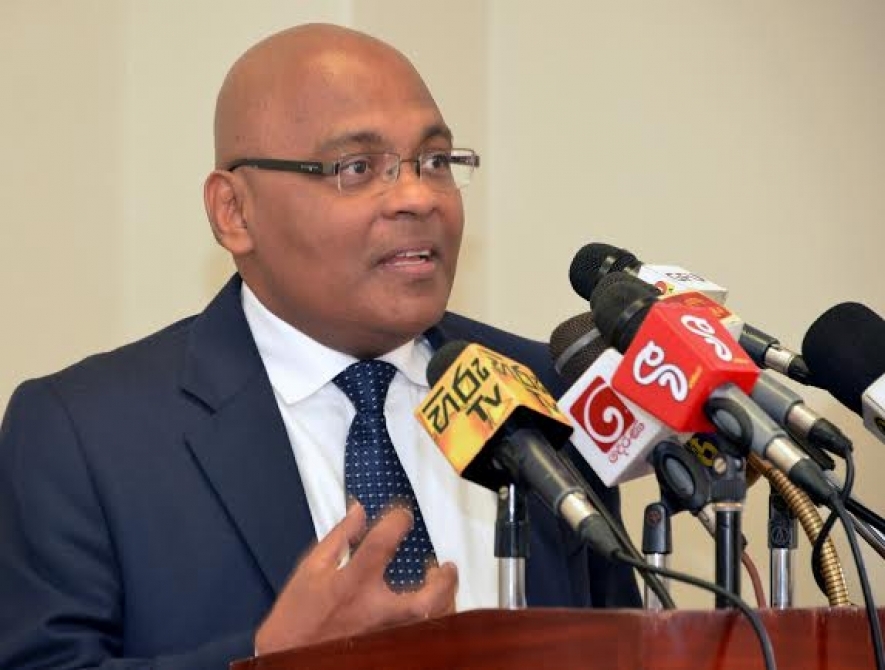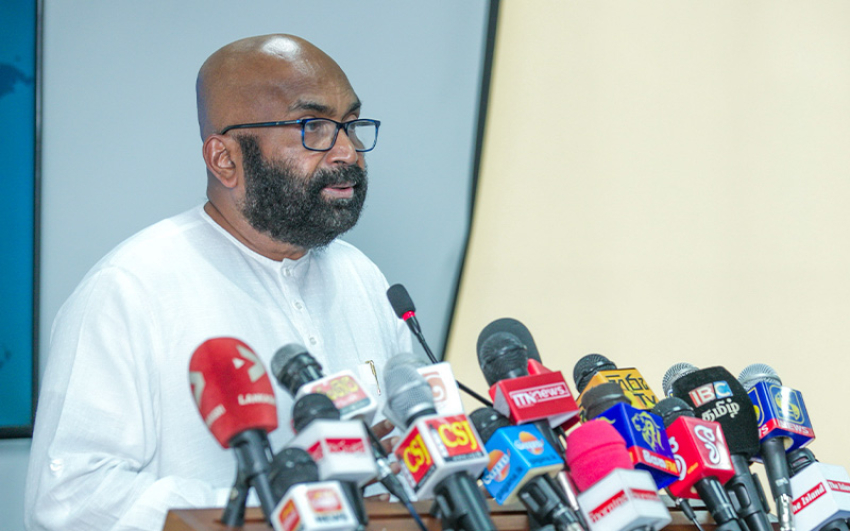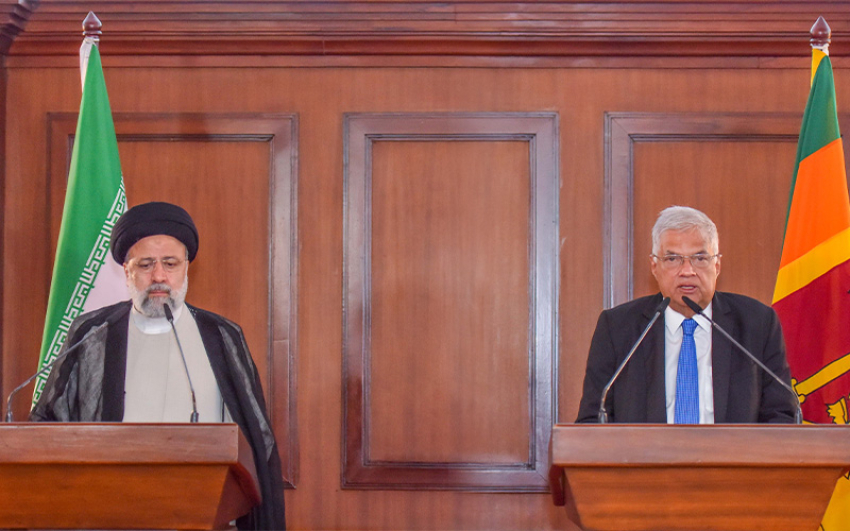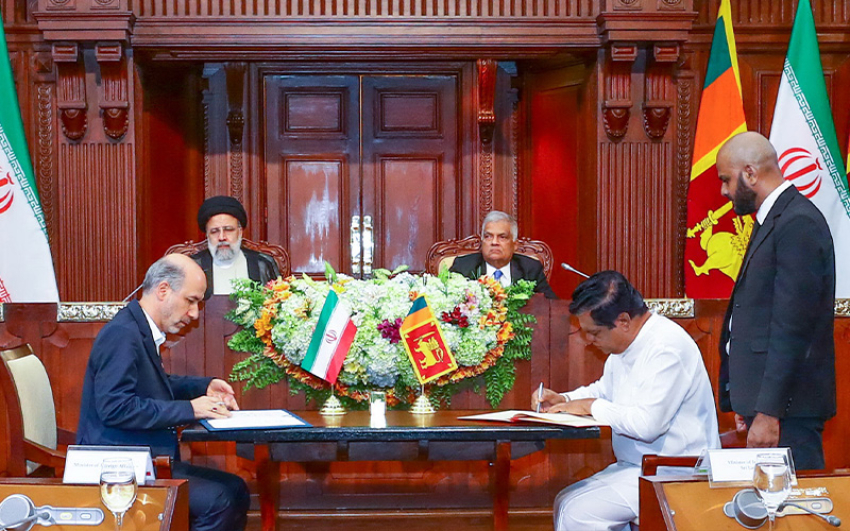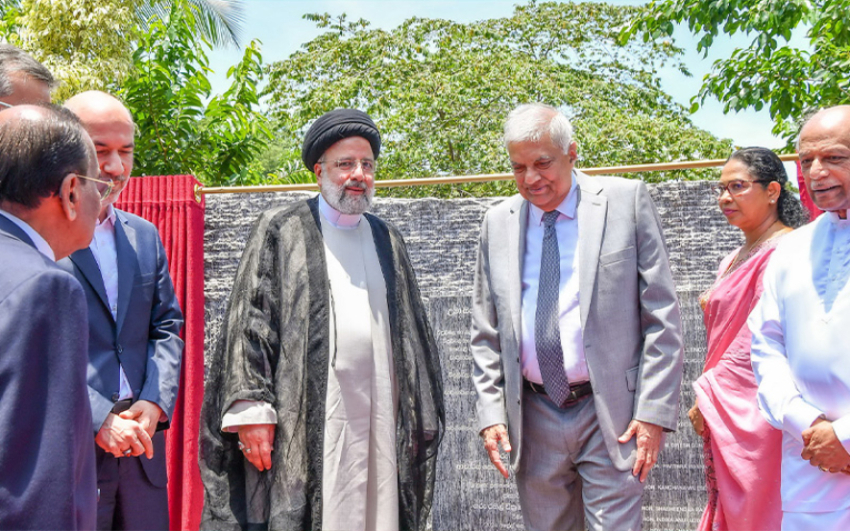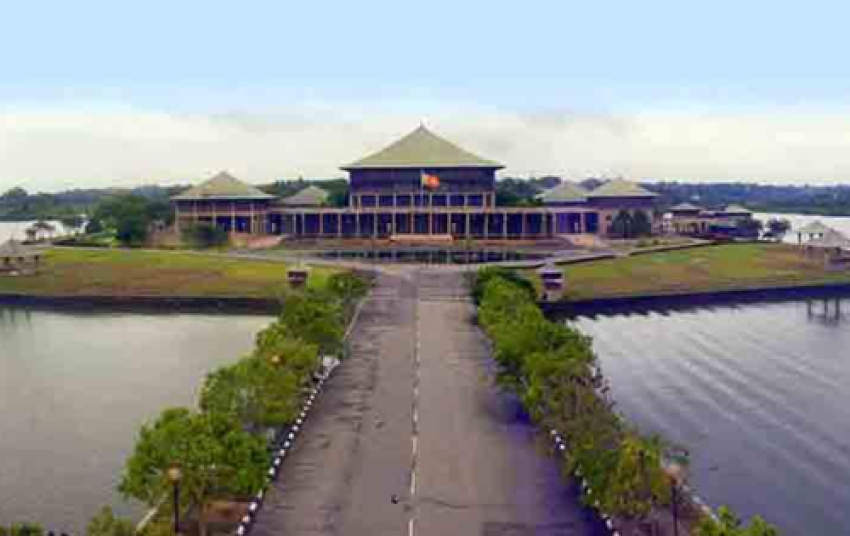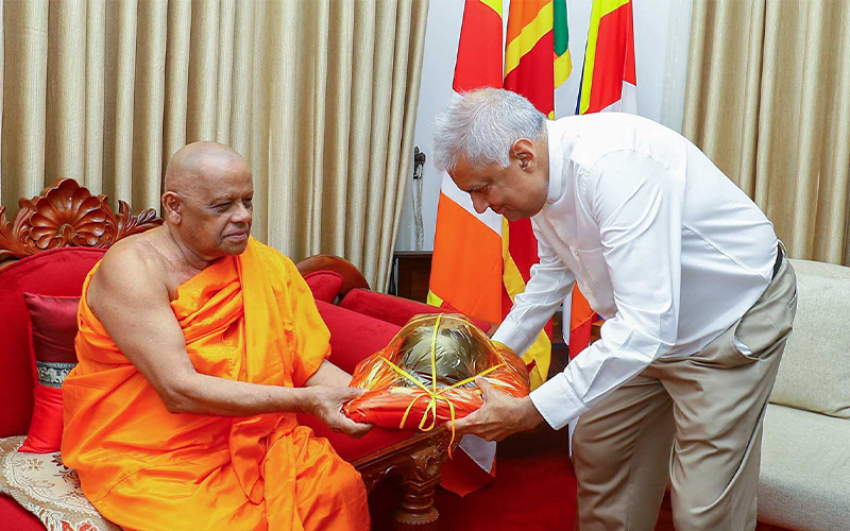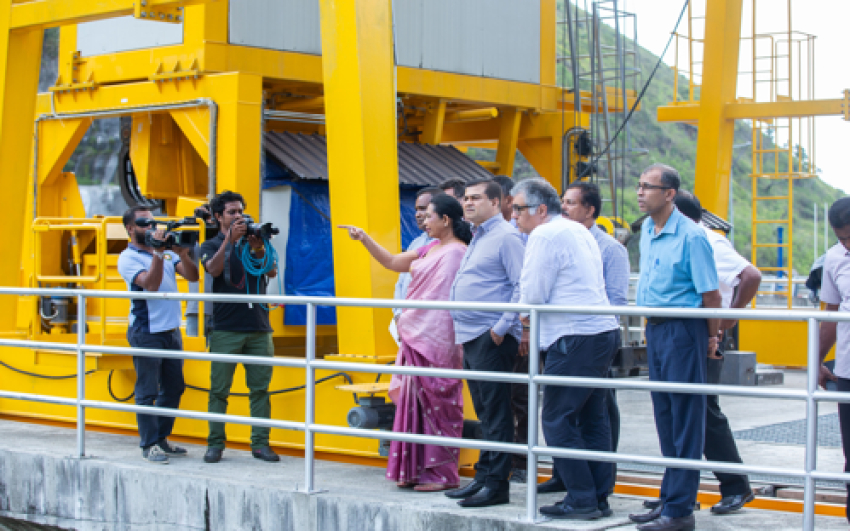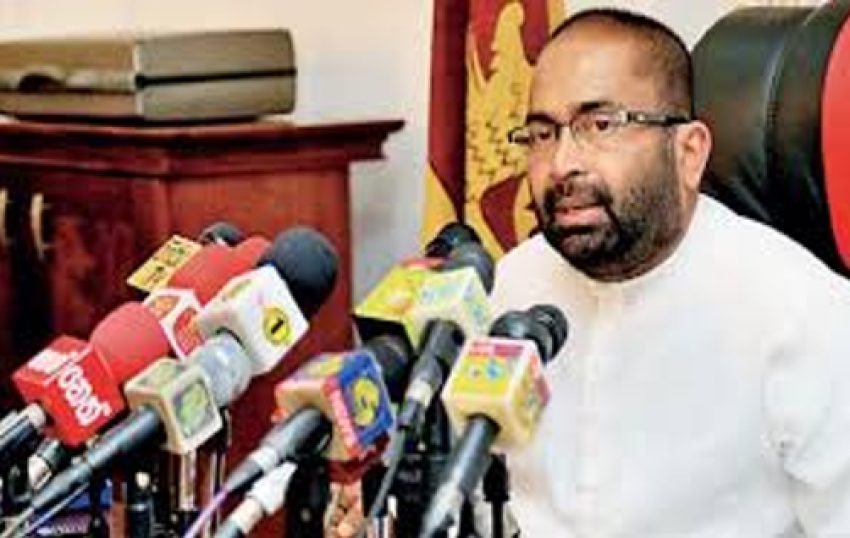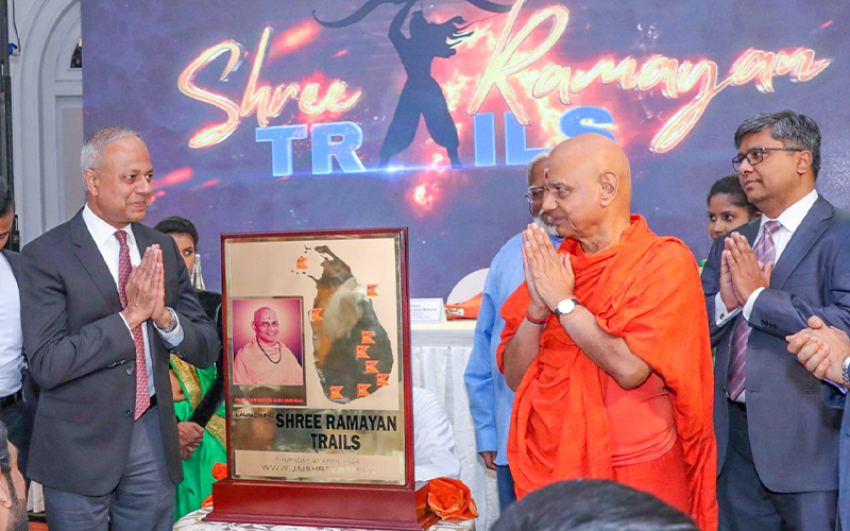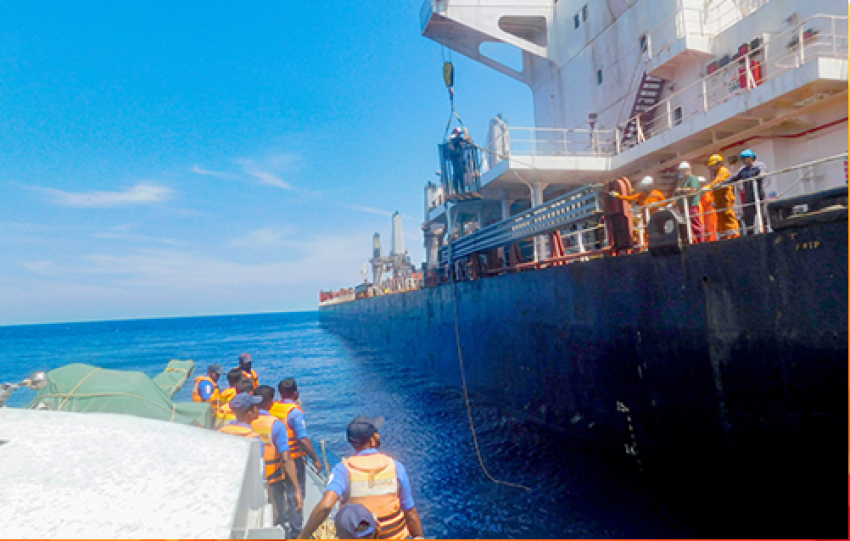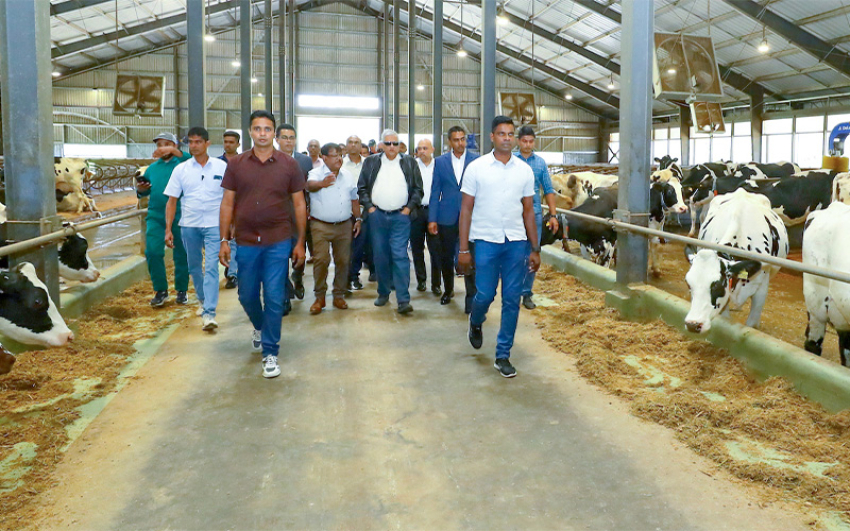He was speaking on the topic "India under Modi: A Turning Point in Indo-Lanka Relations".
Prof.Rohan Gunarathna said "After the ascent of Mr. Modi as the Prime Minister of india, a new beginning and a new dawn in Indo Lanka relations has been established. In the past relations between India and Sri Lanka has had a chequered history of good and bad. and even if you go into deep history Sri Lanka suffered 21 invasions of which 17 invasions were from India. but That does not mean that we did not have good times with India.
"Sri Lanka's greatest gift which is Buddhism and our civilization came from India. So managing relations with India is what determines prosperity or instability. Sri Lanka did exceptionally well until 1970s. For example when we became an independent country Sri Lanka was only second to Japan in economy, 1948. We were always ahead of the rest of South Asia, even today and even during the war. Because Sri Lankans in general have a much higher education level . But what happened in Sri Lanka - the ethnic and the religious politics destroyed this country. We did not manage our ethnic and religious relations properly. Our politicians failed. Not only the politicians of today, but the politicians of the past.
"India still have a command style economy. Infact Mr.Modi scrapped India's planning commission. But in 1977 although we had a brilliant economic policy, geo-politically, geo-strategically we were not sensitive to India. That is where we antagonized India.
"I believe if not for India's cooperation Sri Lanka could have never ended, never dismantled the war in May 2009.
"India did not assist in a significant way to end the war. But indian assistance was they did not interfere and they did not stop Sri Lanka's military advance to defeat the LTTE. That was India's contribution at that time because New Delhi was very much influenced by the politics in Tamil Nadu. But the Indian bureaucracy and the intelligent politicians of India did not intervene. That is why the LTTE could be defeated.
"But today with Mr.Modi coming to power he has made a very important statement not in these words but he reflects that future India's foreign policy will not be governed by Tamil Nadu politics and here is a very strong Indian policy.
"How should Sri Lanka conduct itself in terms of foreign policy? We have pursued a policy 'friendship to all and envy to none'. This policy should continue. But in Sri Lanka we must conduct our foreign policy in a very intelligent way. We must establish a special relationship with India, specially under Modi.
"today we should conduct our foreign policy cautiously. We should not only strengthen the relationship with New Delhi but build a equally friendly relationship with Tamil Nadu including with the smaller organizations that have had a very negative perception of Sri Lanka.
"This is very important as they have a very wrong impression of Sri Lanka. They believe in the statistics that is being used by the UN that 40,000 civilians have died. This figure is incorrect. I myself have interviewed several thousands of LTTE cadres and I want to tell you the numbers that died were much smaller. If 40,000 died certain people would be able to give the names, where they came from. But we don't have those statistics. But it is those statistics that is being paraded, internationally and by some elements in Sri Lanka to discredit the war victory. I believe that the government should challenge any organization that say 40,000 civilians died and ask them to come with the names, their date of birth, addresses and tell them that we will do our own investigation and share the details.
Prof. Gunarathna said that the biggest damage the LTTE did during last 30 years was not killing the people of this country, not destroying the physical infrastructure. The greatest damage was spreading an ideology of prejudice, ideology of suspicion - don't trust the Tamils, Muslims, Sinhalese. He said that we have not addressed this issue. So we have to build harmony centres in every district, harmony clubs in every school. Because still there is prejudice. This was evident in the incidents at Darga Town, Beruwala and Aluthgama he further added.
Prof. Gunarathna said that it will take another generation. One generation is 30 years and it was wasted. Second generation we have to build that trust. Make the tamil and muslim people believe that they are equal to the sinhalese and if we can do that we don't have to create separate regions for them.
Deputy Speaker Chandima Weerakkody who joined the discussion also expressed his views. Chief Opposition Whip John Amaratunga, Deputy Secretary General of Parliament Neil Iddawela, Sergeant-at-Arms Parakrama Samarasekera, Director Information Wasanthapriya Ramanayake, Parliament Journalists' Association President Prageeth Perera, Second Secretary (Education) of Indian High Commission John Joseph were present. (KH)
